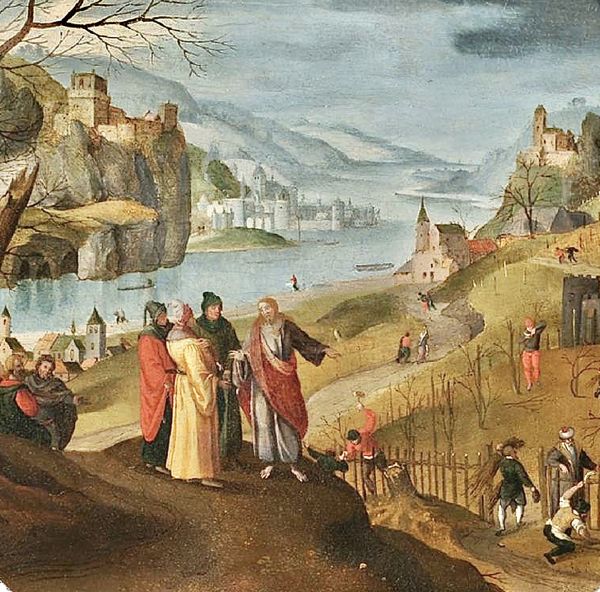Jesus narrates the metaphor of the murderous peasants. Only at the end do the priests and Pharisees realise that it was addressed to them, and try to capture him, fearing however the crowd who considered him a prophet.
Francis well knew that Jesus is the cornerstone, discarded by the builders, yet precious and granite before God.
He knew and repeated in his heart the Psalm (118) that captures all this:
«Jesus says to them: You have never read in the Scriptures: the stone which the builders rejected, this one has become a cornerstone [...]» (Mt 21:42).
In the Sources, in fact, we find the Poverello's great respect for the stones that reminded him of the cornerstone: Christ.
Celano, in the Second Life, emphasises:
"He walked reverently over the stones, out of respect for him who is called Stone. And having to recite the verse, which says: on the stone you raised me up, he changed the words thus for greater respect: 'Under the feet of the Stone you raised me up'" (FF 750).
Following the example of Christ and through the work of the Spirit, Francis became a stone in the building of the Church.
The major legend testifies in this regard:
"During the two years that followed the impression of the stigmata he, like a stone destined for the building of the heavenly Jerusalem, had been squared by the blows of trial, through his many and tormented infirmities, and, like a ductile material, had been reduced to ultimate perfection under the hammer of numerous tribulations" (FF 1239).
Together with Francis, Clare was also transformed into the foundation stone for the Order of the Poor Ladies.
We read: "The first work Francis set about [...] was to rebuild a temple to the Lord. He does not think of building a new one, but restores an ancient and crumbling church; he does not undermine the foundations, but builds on them, thus unknowingly leaving the primacy to Christ. For no one could create another foundation apart from the one that has already been laid: Jesus Christ.
Returning therefore to the place where, as has been said, the church of San Damiano had formerly been built, with the grace of the Most High he repaired it with all diligence in a short time" (FF 350).
"This is the blessed and holy place in which the glorious Order of the "Poor Ladies" and holy virgins, almost six years after his conversion, had its happy origin through the work of Francis himself.
It was there that Lady Clare, also a native of Assisi, a most precious and strong stone, became the cornerstone for all the other stones of this religious family" (FF 351).
On the cornerstone of Christ, the One whom the murderous vinedressers persecuted and killed, were placed (there finding place and meaning) stones made alive by Him to build the Kingdom of God by the power of the Spirit.
Friday, 2nd wk. in Lent (Mt 21:33-43.45-46)












